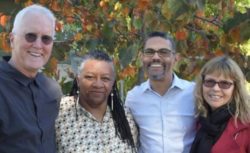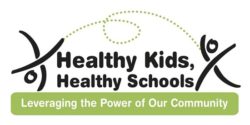Relational Learning in Education
What is Relational Learning?
Relational learning is a way of being with students from a social constructionist perspective where those involved in education–students, mentors, and professors–learn from each other through the sharing of ideas and together create the learning/teaching world. Relational learning are practices that invite both students and teachers/professors to enter into a dialogue about learning. The involvement of multiple parties in the task of learning deconstructs the hierarchy within the traditional teaching relationship and opens space for more collaborative experiences. Most students come to the classroom or university with the traditional model in mind, as this is the way in which they have been taught to interact within a classroom their entire lives. While there may be a place and time for a teacher-centered model, the relational approach lends itself to the active process of co-constructing knowledge not only in the classroom but outside in the world.
Scroll down to see our featured stories!
Lifescaping Project at California State University
Rolla E. Lewis, Ardella Dailey, Greg Jennings, and Peg Winkelman
At its heart, the Lifescaping Project is a performative and results-based direct action advocacy endeavor designed to help education professionals bring about the world they want to build with others. The Lifescaping Project was founded to help share the action research (AR) and appreciative inquiry (AI) efforts of graduate students, professionals-in-training, and working professionals in public schools in the San Francisco East Bay Area. We hope to extend the effort to other schools by providing resources and models of practice.
To read more about the Lifescaping Project
at California State University, please click here
Co-Creating Schools of the Future through Appreciative Inquiry
In the Spring of 2008, two school district administrators embarked on a journey to explore how asset based conversations made possible through a process of Appreciative Inquiry might help a community to examine its schools, determine what is of greatest value to continue doing, and generate possibilities for action and innovation in order to better prepare students for a future world.
To read more about Co-Creating Schools of the Future
through Appreciative Inquiry, please click here
The Peer Mentoring Project: Kent State University
The Peer Mentoring Project at Kent State University is a program that was started as a way to support undergraduate teacher candidates in their required Educational Psychology course. Mentoring has been found to increase students’ academic success, social skills, self-efficacy, and ability to refine their professional dispositions. More importantly, mentoring serves to connect learners on a university campus. It diminishes the din of isolation while opening possibilities of connectedness in the world.
To read more about the Peer Mentoring Project
at Kent State University, please click here
Healthy Kids, Healthy Schools: Leveraging the Power of Our Community
A Project with Houston Schools and DairyMAX
There are few, if any, more urgent health risks facing our community than the current epidemic of overweight and obesity in our society, especially for our K-12 school children. With the aim of supercharging efforts to enhance wellness within the Houston Independent School District (HISD), the Houston community came together in an innovative way Feb 20 -21, 2009, with Healthy Kids, Healthy Schools, an Appreciative Inquiry Summit targeted toward engaging the community in working toward a healthier generation of Houstonians.
To read more about Healthy Kids,
Healthy Schools AI Summit, please click here
Feature Your Relational Learning Project or Practice Here!
Your Relational Learning in Education project/practice/story can be featured on a page of the Taos Institute’s Website! We invite you to join with us to share your story of a project or practice that creates Relational Learning. We can also share your Relational Learning in Education project/practice/story in languages other than English.
To showcase a relational learning project or practice you are involved with, email info@taosinstitute.net
We want to thank Kristen Chorba and Dr. Anne Morrison, a Taos Institute Associate, from Kent State University. They have created this wonderful feature on our website to provide a way for everyone to share their Relational Learning practices.


